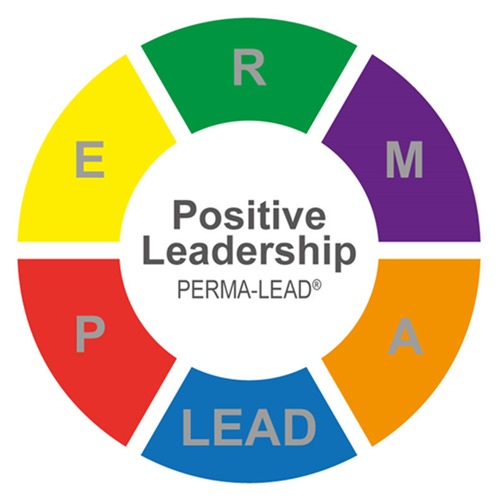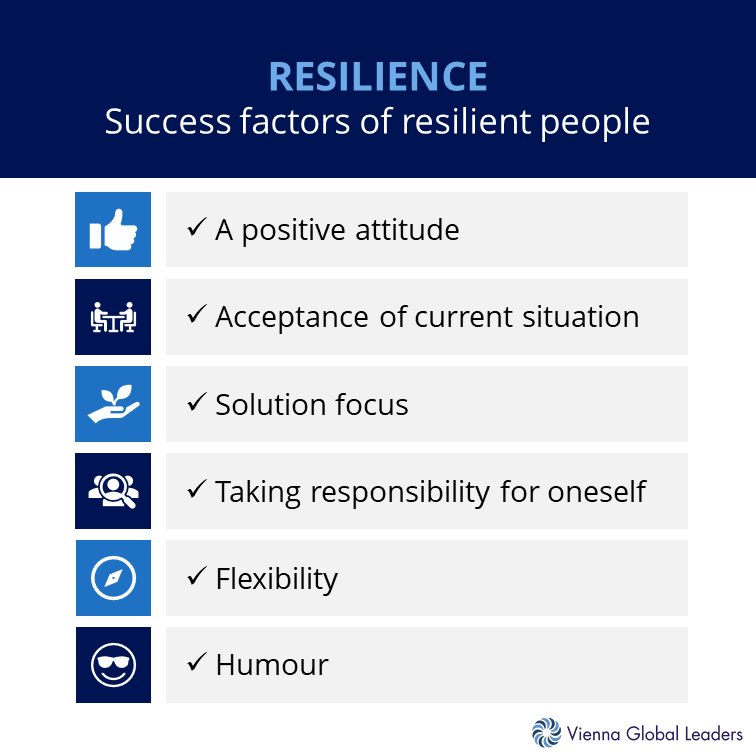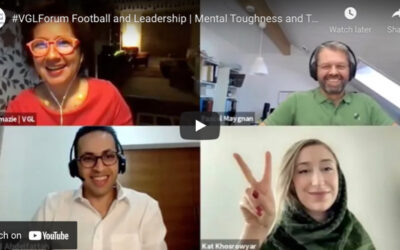The Power of Resilience – How to Lead Under Pressure
12 November 2019 | VGL Forum

The 4th VGL Forum on the 3rd of October 2019 focused on the power of resilience in the workplace.
Over a third of employees worldwide experience high or extreme stress levels at work, caused by constantly connected, always-on, highly demanding work conditions. To cope with pressure in the workplace and the demands of daily life, it is more important than ever to build resilience skills.
Resilience is the capability to cope with these demanding challenges and is recognized to be needed on an individual, team and organizational level in this VUCA world.
1. Resilience as a skill for individuals
Individual resilience relies on a person’s capacity to cope and even thrive when facing stressful situations at work. Generally speaking, resilience is the ability to ‘bounce back’ from challenges. The good news: resilience can be developed as it is a skill.
During the plenary discussion, we examined several success factors of resilient people, such as: a positive attitude, acceptance of the current situation, solution-focus instead of problem-focus, self-regulation and impulse control, taking responsibility for oneself, networking and future orientation. Especially the use of positive emotions to overcome negative emotional experience is a characteristic of resilient people.
The role of the leader – a positive leadership approach
Still, developing a resilient workforce needs to be supported and facilitated by the organization, especially by the leader or manager. Having the most important influence on the staff, resilience is a critical component of effective leadership.

Evidence-based research indicates that a positive leadership approach supports resilience in the workplace. PERMA-Lead®, developed by Markus Ebner and following Martin Seligman’s PERMA concept, means a leadership style based on Positive Emotions, Engagement, Relationship, Meaning and Accomplishment; hence, PERMA. Ebner’s studies on the effects of PERMA-Lead® show that a positive leadership approach not only enhances the resilience of the leader, but also reduces the experience of stressful situations for the staff.
What can a leader do to develop more positive emotions at work?
This could be: celebrating successful projects or personal occasions like birthdays, even if it is only a small event, complimenting someone in the presence of others (colleagues, superiors, customers), having an appreciative communication style or spending time together, for instance at lunch time or after work. Small acts like these, done on a regular basis, will increase a positive environment and the basis for a more motivated and resilient workforce.
2. Successful resilient teams
In a more agile and diverse world, effectively working together has become crucial for being successful as a team. To be resilient as a team facing a crisis, it is even more important to enhance resilience in advance. This should be cultivated by leadership but also by cultivating strong relationships among the team members.
According to research, resilient teams have four things in common:
- They believe they can effectively complete tasks together.
- They share a common mental model of teamwork.
- They are able to improvise.
- They trust one another and feel safe.
The task of the leader is therefore building team confidence, clarifying how team members’ roles fit together, strengthening improvisation ability and developing a culture of safety.
Within the team practical actions are: supporting each other, appreciating one another, having a positive mindset, being curious to know more about the others’ point of view, exchanging critical feedback, having fun and using humour, looking for solutions and positive outcomes together, being flexible and being open to learn from each other

3. The organizational resilience framework
On an organizational level, resilience is a strategic necessity for an organization to prosper. But there is no single approach to enhance an organization’s resilience. Therefore, in 2017, the International Organization for Standardization (ISO) established the principles for organizational resilience in ISO 22316:2017E. In this framework the attributes for organizational resilience are described as:
- Shared vision and clarity of purpose
- Understanding and influence context
- Effective and empowered leadership
- A culture supportive of organizational resilience
- Shared information and knowledge
- Availability or resources
- Development and coordination of management disciplines
- Supporting continual improvement
- Ability to anticipate and manage change
The standard also includes the description of supporting activities for gaining organizational resilience.
Training for resilience
The different levels of resilience are linked to each other and must be developed in advance to be effective within a crisis. Resilience training has been found to have a positive impact on mental health and subjective wellbeing. As a workplace training, it can be delivered in different designs, such as group-based training or coaching.
Recommended Readings:
Baeijaert, Liselotte/Stellamans, Anton (2011): Resilient People, Resilient Teams, ilfaro, www.ilfaro.be
Craig, Heather (2019): Resilience in the Workplace: How to Be More Resilient at Work, online here
Ebner, Markus (2019): Positive Leadership, Facultas Verlag, Wien
Kirkman, Bradley et al (2019): The 4 Things Resilient Teams Do, Harvard Business Review, online here Reivich, Karen/Shatté, Andrew (2002): The Resilience Factor, Three Rivers Press, New York

Gudrun is a specialist in personnel and organizational development and works as a lecturer and trainer. She was Head of Study Programs Human Resources & Organization at FHWien der WKW University of Applied Sciences. Gudrun is particularly interested in resource-based approaches like positive leadership, resilience or solution-focused training to develop leaders, teams and organizations. Contact on LinkedIn

Gudrun is a specialist in personnel and organizational development and works as a lecturer and trainer. She was Head of Study Programs Human Resources & Organization at FHWien der WKW University of Applied Sciences. Gudrun is particularly interested in resource-based approaches like positive leadership, resilience or solution-focused training to develop leaders, teams and organizations. Contact on LinkedIn
Recent Posts
Recording: VGL Forum – Young Leaders
Watch the recording of the VGL Forum on Young Leaders – Best Practices on How to Attract and Retain Them.
Recording: VGL Forum – Football and Leadership
Watch the recording of the VGL Forum on Football and Leadership, covering motivation, trust, mental toughness and leading different performers.
Work Smarter, not Harder – How to Boost Productivity in 5 Simple Steps
In the shift to a digital workplace, productivity has become a top priority to overcome fatigue and optimise time management. Here are 5 tips how to boost your productivity mindfully.

Vienna Global Leaders is a platform by EUNEPA dedicated to developing and connecting managers and leaders in a complex world.
Vienna Global Leaders by EUNEPA
Wiedner Hauptstrasse 142 / Top 5, 1050 Vienna, Austria
T: +43 1 996 2078
E: info@viennagloballeaders.com




0 Comments